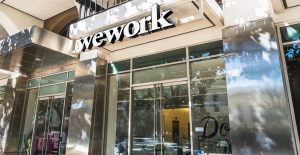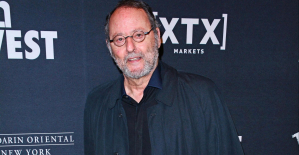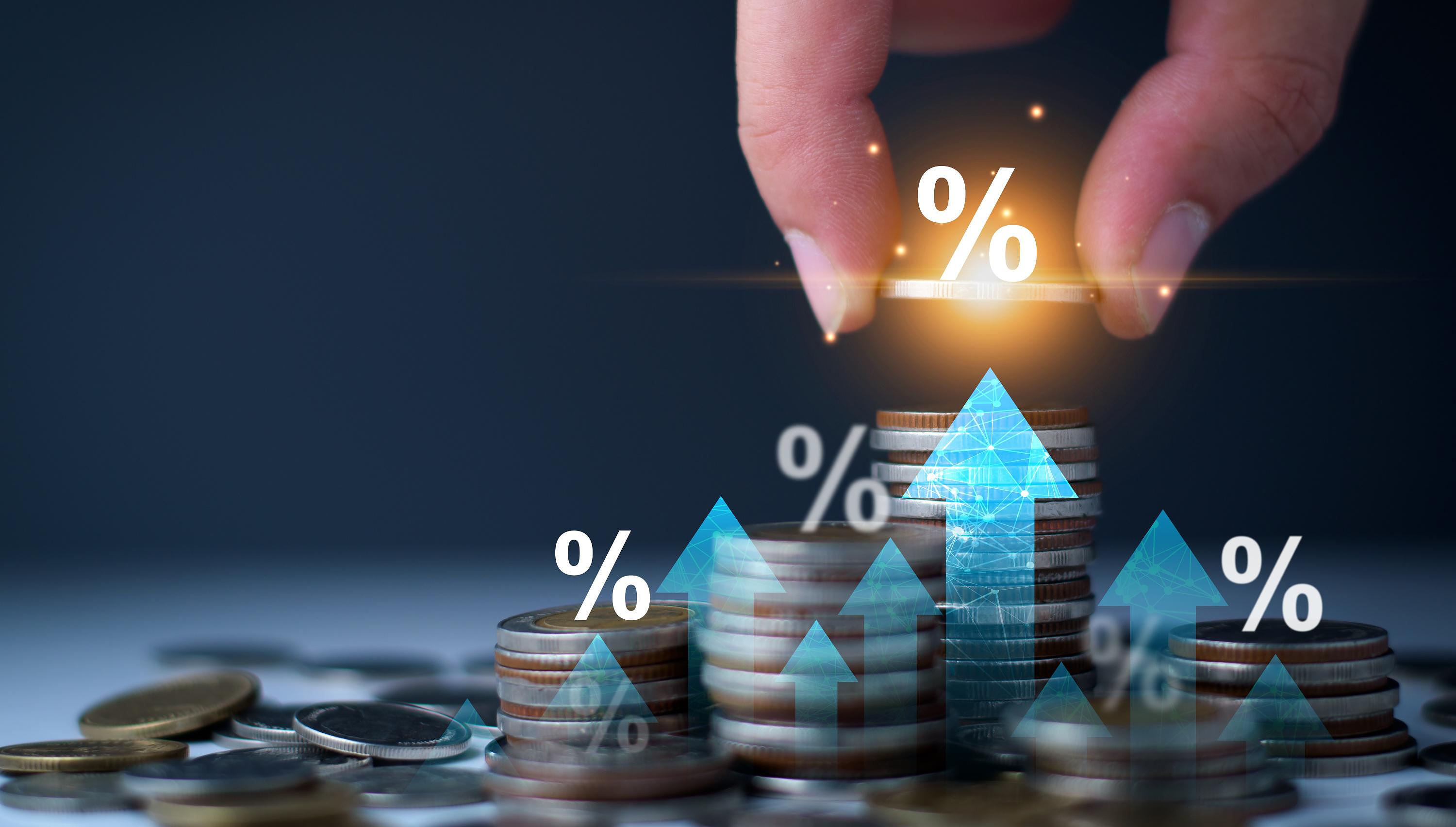The US Federal Reserve has raised its key interest rate by 0.5 percentage points in the fight against inflation. The Federal Reserve (Fed) thus introduced a somewhat more moderate course on Wednesday – but at the same time signaled further interest rate hikes. The key interest rate is now in the range of 4.25 to 4.50 percent. "We will stay the course until the job is done," Fed Chair Jerome Powell said at a news conference. Fed forecasts show that inflation will remain high for longer than expected. The economic forecast for the USA is not very optimistic either.
Most recently, the Fed raised the key interest rate by an impressive 0.75 percentage points four times in a row – this is the seventh increase this year. Fed Chairman Powell indicated in November that at least the big jumps could be over. The new inflation data from the Department of Labor may have encouraged him in this decision - they showed the fifth decline in the inflation rate in a row. Long-term estimates of consumer prices, however, show that long-term inflation is still a long way from the 2 percent that the Fed wants.
The inflation rate is expected to average 5.6 percent this year. This indicates that the momentum of the price increase is slowing down. But for 2023, the Fed is forecasting an average inflation rate of 3.1 percent, and then 2.5 percent for 2024. "We continue to believe that further increases are appropriate," Powell said. At the moment, there are simply not enough signs to be sure that inflation is falling on a sustained basis – quite the contrary.
The latest rate hike is smaller than the previous ones, but still significant. Usually, the Fed prefers to raise interest rates in increments of 0.25 percentage points. The decision-makers at the Fed expect the key interest rate to average 5.1 percent in 2023. The increase in the key interest rate makes loans more expensive, which slows down demand. This helps bring down the inflation rate, but also weakens economic growth. With the Fed's strict monetary policy, there is a growing risk that the bank will slow down the economy so severely that the job market and economy will stall.
The Fed is now predicting significantly lower economic growth for the coming year than assumed just three months ago. The gross domestic product (GDP) of the world's largest economy will grow by 0.5 percent in 2023. In September, the Fed had forecast growth of 1.2 percent. "I don't think anybody knows if there's going to be a recession or not," the Fed chairman said. And if there is one, it cannot be said how severe it will be.
A turbulent year lies behind the US Federal Reserve. The drastic measures are the result of inflation that was at times higher than it had been in decades. The Fed has struggled to keep pace with rising consumer prices and has been taking interest rate hikes at an unusual pace. At first there seemed to be no success. This is also due to the fact that the Fed's interest rate decisions only take effect with a delay. And so the full force of the unusually large rate hikes could only be felt in the coming year.
The New York stock exchanges got off lightly despite the prospect of further interest rate hikes. The most important indices slipped into the red after the Fed statements, but ultimately remained above their daily lows.
The leading index Dow Jones Industrial contained its loss at the end of trading at 33,966.35 points to 0.42 percent. For the market-wide S
Portfolio manager Thomas Altmann from QC Partners drew a mixed conclusion from the Fed's statements: “The Fed is slowing down. The days of jumbo increases are over. The new pace is 50 basis points. That's the good news," he said. "But: Everyone who counted on a quick end to the current increase cycle will be bitterly disappointed today." Corresponding hopes had been fueled on Tuesday by a surprisingly significant weakening of inflation in the USA.
Among stocks on Wednesday, Moderna stood out again as the Nasdaq 100 leader, up 5.8 percent to $208.95. The day before, the shares of the biotech company had risen thanks to positive study results on a combination therapy of a Moderna cancer vaccine and the tumor drug pembrolizumab from Merck
Meanwhile, yesterday's Nasdaq taillight Tesla was again not in demand with a minus of over two and a half percent. The shares of the electric car manufacturer are still at their lowest level in two years - in 2022 they have lost more than half their value so far. Bernstein analyst Toni Sacconaghi argued in a study at the end of November that the stock is still highly valued compared to traditional car manufacturers. The market value, which was around $1.3 trillion at its peak, has now fallen below $500 billion. At the same time, the three major German car manufacturers Volkswagen, Mercedes-Benz and BMW together only make the equivalent of 215 billion dollars.

 What is chloropicrin, the chemical agent that Washington accuses Moscow of using in Ukraine?
What is chloropicrin, the chemical agent that Washington accuses Moscow of using in Ukraine? Poland, big winner of European enlargement
Poland, big winner of European enlargement In Israel, step-by-step negotiations for a ceasefire in the Gaza Strip
In Israel, step-by-step negotiations for a ceasefire in the Gaza Strip BBVA ADRs fall almost 2% on Wall Street
BBVA ADRs fall almost 2% on Wall Street Children born thanks to PMA do not have more cancers than others
Children born thanks to PMA do not have more cancers than others Breast cancer: less than one in two French women follow screening recommendations
Breast cancer: less than one in two French women follow screening recommendations “Dazzling” symptoms, 5,000 deaths per year, non-existent vaccine... What is Lassa fever, a case of which has been identified in Île-de-France?
“Dazzling” symptoms, 5,000 deaths per year, non-existent vaccine... What is Lassa fever, a case of which has been identified in Île-de-France? Sánchez cancels his agenda and considers resigning: "I need to stop and reflect"
Sánchez cancels his agenda and considers resigning: "I need to stop and reflect" “Amazon product tester”: the gendarmerie warns of this new kind of scam
“Amazon product tester”: the gendarmerie warns of this new kind of scam “Unjustified allegations”, “promotion of illicit products”… Half of the influencers controlled in 2023 caught by fraud repression
“Unjustified allegations”, “promotion of illicit products”… Half of the influencers controlled in 2023 caught by fraud repression Extension of the RER E: Gabriel Attal welcomes a “popular” ecology project
Extension of the RER E: Gabriel Attal welcomes a “popular” ecology project WeWork will close 8 of its 20 shared offices in France
WeWork will close 8 of its 20 shared offices in France “We were robbed of this dignity”: Paul Auster’s wife denounces the betrayal of a family friend
“We were robbed of this dignity”: Paul Auster’s wife denounces the betrayal of a family friend A masterclass for parents to fill in their gaps before Taylor Swift concerts
A masterclass for parents to fill in their gaps before Taylor Swift concerts Jean Reno publishes his first novel Emma on May 16
Jean Reno publishes his first novel Emma on May 16 Cannes Film Festival: Meryl Streep awarded an honorary Palme d’Or
Cannes Film Festival: Meryl Streep awarded an honorary Palme d’Or Omoda 7, another Chinese car that could be manufactured in Spain
Omoda 7, another Chinese car that could be manufactured in Spain BYD chooses CA Auto Bank as financial partner in Spain
BYD chooses CA Auto Bank as financial partner in Spain Tesla and Baidu sign key agreement to boost development of autonomous driving
Tesla and Baidu sign key agreement to boost development of autonomous driving Skoda Kodiaq 2024: a 'beast' plug-in hybrid SUV
Skoda Kodiaq 2024: a 'beast' plug-in hybrid SUV The home mortgage firm rises 3.8% in February and the average interest moderates to 3.33%
The home mortgage firm rises 3.8% in February and the average interest moderates to 3.33% This is how housing prices have changed in Spain in the last decade
This is how housing prices have changed in Spain in the last decade The home mortgage firm drops 10% in January and interest soars to 3.46%
The home mortgage firm drops 10% in January and interest soars to 3.46% The jewel of the Rocío de Nagüeles urbanization: a dream villa in Marbella
The jewel of the Rocío de Nagüeles urbanization: a dream villa in Marbella Europeans: a senior official on the National Rally list
Europeans: a senior official on the National Rally list Blockade of Sciences Po: the right denounces a “drift”, the government charges the rebels
Blockade of Sciences Po: the right denounces a “drift”, the government charges the rebels Even on a mission for NATO, the Charles-de-Gaulle remains under French control, Lecornu responds to Mélenchon
Even on a mission for NATO, the Charles-de-Gaulle remains under French control, Lecornu responds to Mélenchon “Deadly Europe”, “economic decline”, immigration… What to remember from Emmanuel Macron’s speech at the Sorbonne
“Deadly Europe”, “economic decline”, immigration… What to remember from Emmanuel Macron’s speech at the Sorbonne These French cities that will boycott the World Cup in Qatar
These French cities that will boycott the World Cup in Qatar Champions Cup: Toulouse with Flament and Kinghorn against Harlequins, Ramos replacing
Champions Cup: Toulouse with Flament and Kinghorn against Harlequins, Ramos replacing Tennis: still injured in the arm, Alcaraz withdraws from the Masters 1000 in Rome
Tennis: still injured in the arm, Alcaraz withdraws from the Masters 1000 in Rome Sailing: “Like a house that threatens to collapse”, Clarisse Crémer exhausted and in tears aboard her damaged boat
Sailing: “Like a house that threatens to collapse”, Clarisse Crémer exhausted and in tears aboard her damaged boat NBA: Patrick Beverley loses his temper and throws balls at Pacers fans
NBA: Patrick Beverley loses his temper and throws balls at Pacers fans


















